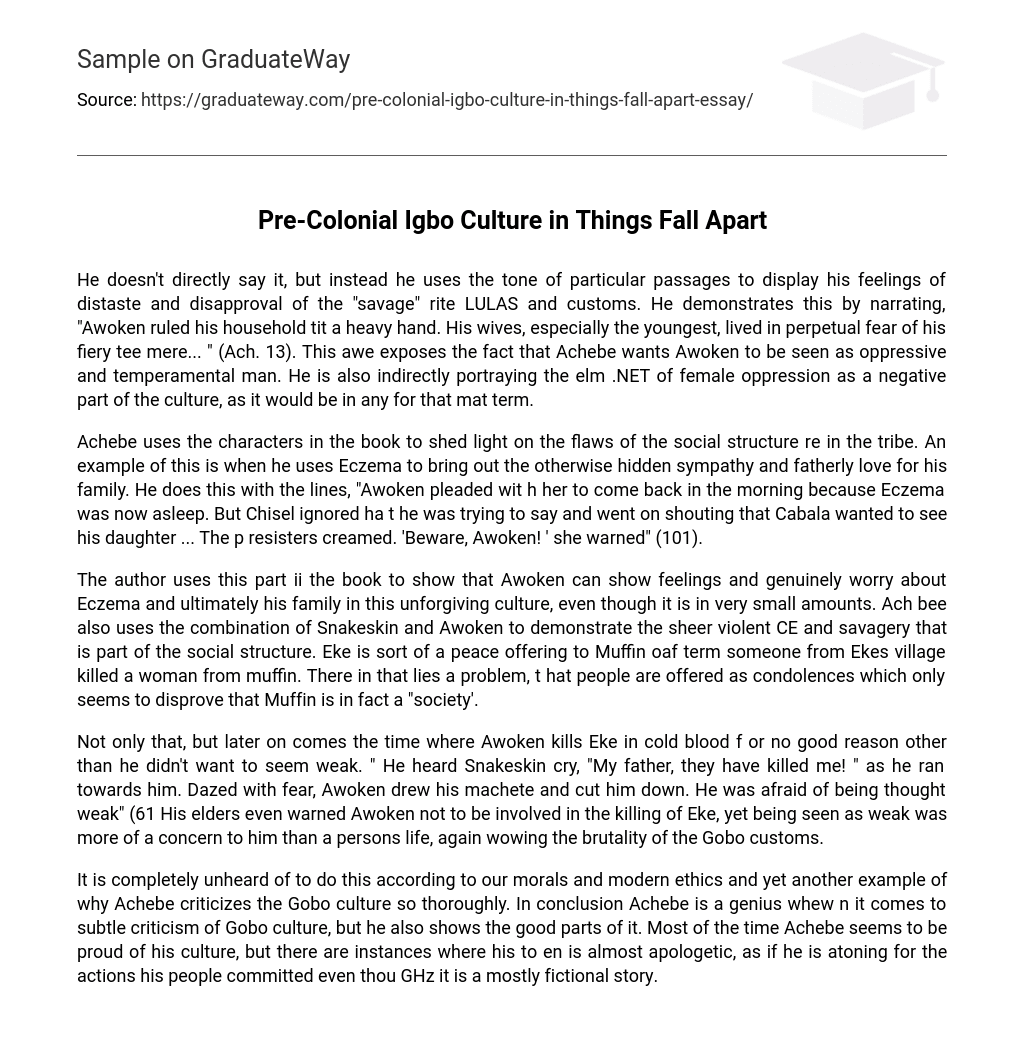He doesn’t directly say it, but instead he uses the tone of particular passages to display his feelings of distaste and disapproval of the “savage” rite LULAS and customs. He demonstrates this by narrating, “Awoken ruled his household tit a heavy hand. His wives, especially the youngest, lived in perpetual fear of his fiery tee mere… ” (Ach. 13). This awe exposes the fact that Achebe wants Awoken to be seen as oppressive and temperamental man. He is also indirectly portraying the elm .NET of female oppression as a negative part of the culture, as it would be in any for that mat term.
Achebe uses the characters in the book to shed light on the flaws of the social structure re in the tribe. An example of this is when he uses Eczema to bring out the otherwise hidden sympathy and fatherly love for his family. He does this with the lines, “Awoken pleaded wit h her to come back in the morning because Eczema was now asleep. But Chisel ignored ha t he was trying to say and went on shouting that Cabala wanted to see his daughter … The p resisters creamed. ‘Beware, Awoken! ‘ she warned” (101).
The author uses this part ii the book to show that Awoken can show feelings and genuinely worry about Eczema and ultimately his family in this unforgiving culture, even though it is in very small amounts. Ach bee also uses the combination of Snakeskin and Awoken to demonstrate the sheer violent CE and savagery that is part of the social structure. Eke is sort of a peace offering to Muffin oaf term someone from Ekes village killed a woman from muffin. There in that lies a problem, t hat people are offered as condolences which only seems to disprove that Muffin is in fact a “society’.
Not only that, but later on comes the time where Awoken kills Eke in cold blood f or no good reason other than he didn’t want to seem weak. ” He heard Snakeskin cry, “My father, they have killed me! ” as he ran towards him. Dazed with fear, Awoken drew his machete and cut him down. He was afraid of being thought weak” (61 His elders even warned Awoken not to be involved in the killing of Eke, yet being seen as weak was more of a concern to him than a persons life, again wowing the brutality of the Gobo customs.
It is completely unheard of to do this according to our morals and modern ethics and yet another example of why Achebe criticizes the Gobo culture so thoroughly. In conclusion Achebe is a genius whew n it comes to subtle criticism of Gobo culture, but he also shows the good parts of it. Most of the time Achebe seems to be proud of his culture, but there are instances where his to en is almost apologetic, as if he is atoning for the actions his people committed even thou GHz it is a mostly fictional story.





